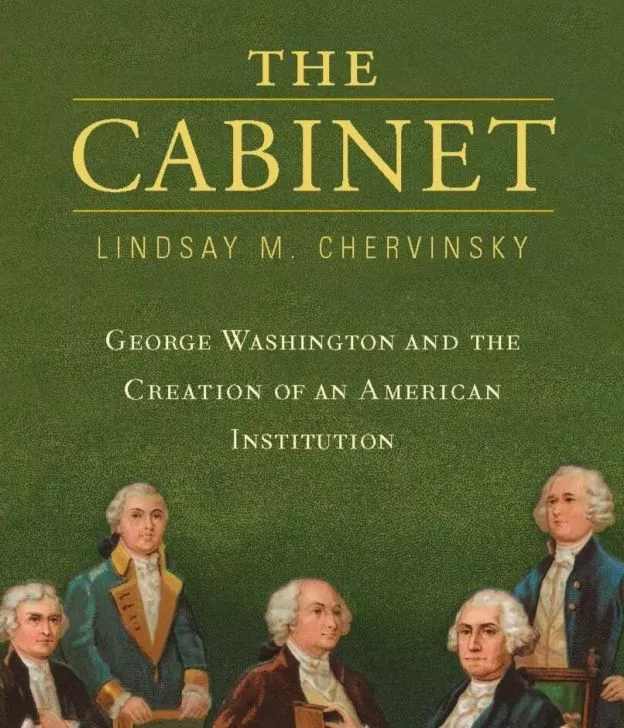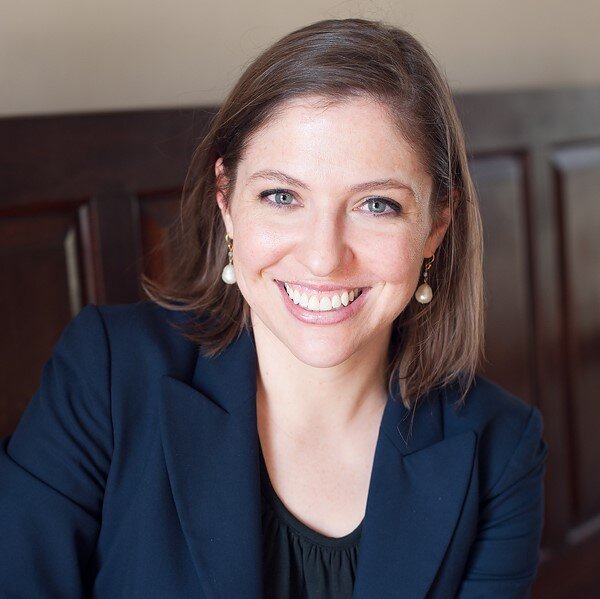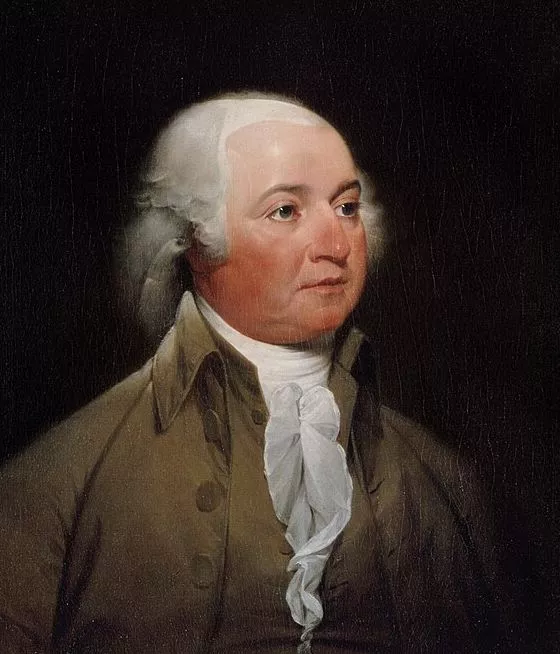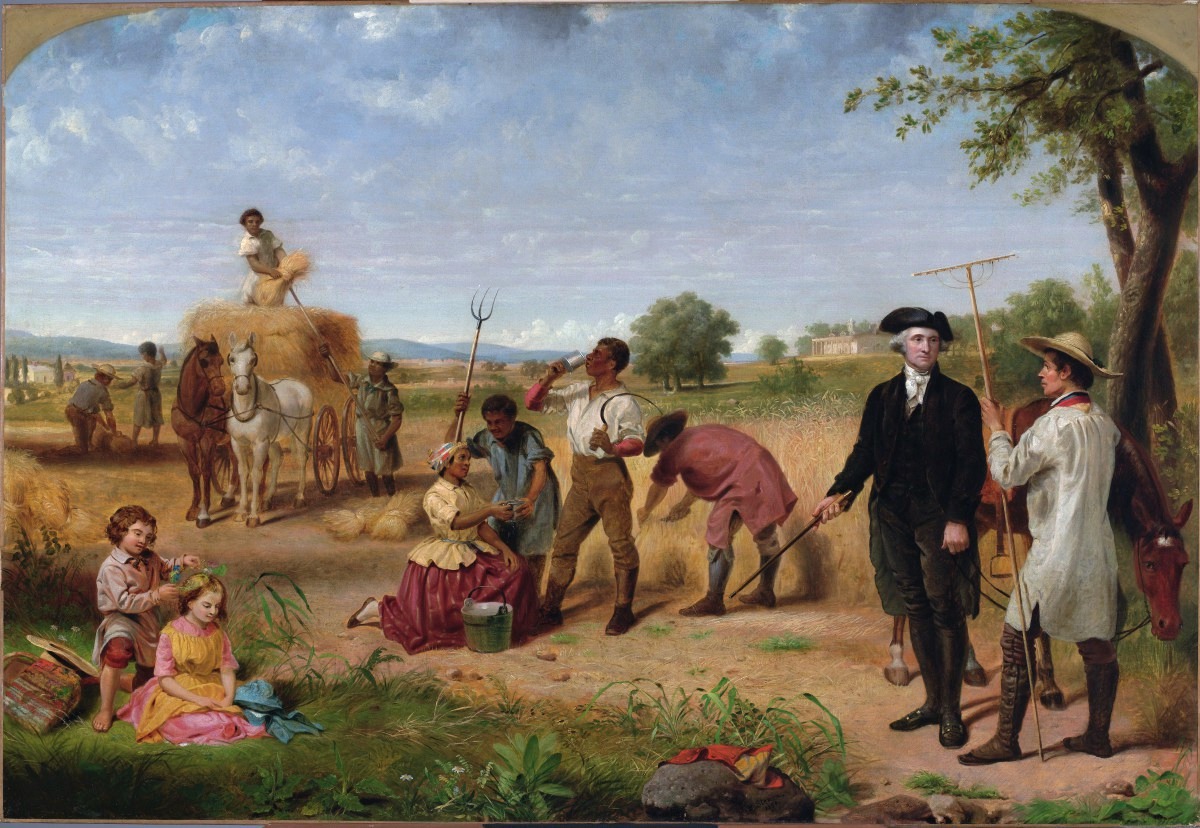
An interview with Professor Lindsay Chervinsky
JMC Resident Historian Elliott Drago sat down with JMC Scholar Lindsay Chervinsky to discuss her work on the presidential cabinet and how individuals can change the course of history. Dr. Chervinsky is currently a fellow at the Kluge Center at the Library of Congress and a Senior Fellow at the Center for Presidential History at Southern Methodist University.
The next great story is right around the corner
ED: Why did you become an American historian?
LC: I’ve always loved exploring how past generations experienced their lives. I have a picture of myself when I was six at Jamestown in a steel helmet and chainmail armor, so this interest is long-lasting! While many things have changed throughout history (electricity, modern medicine, plumbing, fashion), I am fascinated by the aspects of human existence that are the same: love, hopes, dreams, failures, sadness, and loss. Once I started studying in earnest, I became particularly compelled by the study of power and how people use it, how they leave their fingerprints on history, and how individuals can change the course of events.
While I have a deep love of Tudor history, it never occurred to me to study anything other than American history, perhaps because we are surrounded by it.
The Revolutionary and Early Republic eras were a natural draw because they were periods of such tremendous change and creation. I’d argue that the individuals in office at that moment had more power to affect the direction and formation of government than in any other periods because, so few people (relatively) were involved. Once I began my work on the presidency, that interest in power, the office, and how individuals respond to it has only grown and I’ve expanded my work beyond the Early Republic.

ED: What led you to write your book?
LC: I knew I wanted to write something about the George Washington administration, but I was not completely sure which angle I wanted to explore. As a starting point, I looked for books on Washington’s cabinet, but couldn’t find any. Then, I searched for work on the creation of the president’s cabinet, thinking there must be an institutional study somewhere. I came up empty again.
There is lots of excellent scholarship on the cabinet’s evolution, especially in the twentieth century, and of course, there are many works on the individuals in Washington’s cabinet, especially Alexander Hamilton and Thomas Jefferson. But no one had ever examined the origins of the institution. I think most historians, political scientists, and astute observers assumed that because every president had worked with a cabinet, it had existed from the beginning or was enshrined in the Constitution. Or they assumed that someone else had already written the book because Washington forged the cabinet over 200 years ago.
I figured if I was curious about the cabinet, surely others would be too, especially because the cabinet has survived and plays a central role at the heart of every administration.
ED: Why do we need to read your book?
LC: We can’t understand George Washington, his presidency, or the pivotal events of the 1790s without understanding the central role of his cabinet, how he created the institution, how carefully he selected the department secretaries, or how meticulously he managed the interactions.
The Cabinet also offers important implications for American history more broadly. The president of the United States is probably the most powerful person in the world, at least since the turn of the twentieth century. But the president has always had an oversized influence on American history, culture, and memory. I think my book demonstrates that the cabinet is the best way to understand a presidential administration, for Washington and all his successors. The cabinet is at the heart of every major moment, whether it be legislation, economic issues, diplomacy, or war. Nothing big happens in an administration without the cabinet’s involvement or intentional exclusion.
The cabinet is also the best way to understand presidential leadership.
Usually, the department secretaries are successful men and women with big ideas and bigger egos, and they are used to getting their own way. Managing those conflicting agendas is a challenge for every president and quickly reveals a president’s strengths and weaknesses.
Those dynamics, the potential and peril of the cabinet, exist because Washington created the cabinet to be a flexible advisory body that serves the president at their discretion.
ED: What does your book’s subject matter reveal about America’s founding principles and history?
LC: The founders were just human beings, doing the best they could to tackle challenges as they emerged without knowing if the American experiment would work. We sometimes risk thinking of them as oracles with all human knowledge. Some of them were brilliant and well educated, but they were mortal. We have the benefit of hindsight and know that the nation survived; they did not.
The Constitution was a series of compromises designed to address the limitations of the Articles of Confederation and entice the requisite states to ratify the document. Like all best laid plans, its execution was imperfect. More importantly, the framers expected it to be imperfect. They knew there were problems they had not yet solved (like slavery) and problems they could not possibly foresee. They hoped future generations would devise creative solutions beyond their imagination.
No easy task
ED: What is your next project?
LC: My next book, Making the Presidency: John Adams and the Precedents That Forged the Republic, will be out in August 2024. This book shows how John Adams’s leadership and legacy defined the office for those who followed and ensured the survival of the American republic. That sounds hyperbolic, but I discovered that who comes second is almost as important as who comes first, especially because Washington was such a unique figure in American history. No one else would enjoy his stature or prestige, meaning that the second president was actually responsible for forging the office for everyone else.
That was no easy task. The United States of 1797 faced enormous challenges, provoked by enemies foreign and domestic. Washington left Adams with relatively little guidance and impossible expectations to meet. Adams was confronted with intense partisan divides, debates over citizenship, fears of political violence, potential for foreign conflict with France and Britain, and a nation unsure that the presidency could even work without Washington at the helm.

Adams was one of the most qualified presidents in American history—he had been a legislator, political theorist, diplomat, minister, and vice president—but he had never held an executive position. Instead, the quixotic and stubborn Adams would rely on his ideas about executive power, the Constitution, politics, and the state of the world to navigate the hurdles of the position. He defended the presidency from his own often obstructionist cabinet, protected the nation from foreign attacks, and forged trust and dedication to election integrity and the peaceful transfer of power between parties, even though it cost him his political future. Many of the political norms and customs that serve as the bedrock of our democratic institutions exist because of John Adams.
ED: What’s one thing you wish everyone knew about American history?
LC: The real and messy story is so much more interesting, inspirational, and useful than a version that overly glorifies heroes. To be clear, I’m not saying we shouldn’t respect and value past leaders, but that their contributions are even more impressive when viewed as the actions of fallible people. Washington is a great example.
He held the Continental Army together, sometimes with sheer willpower and the strength of his own two hands, to defeat the most powerful empire at the time. Or at least survive long enough, which he knew was all that was required. He went home for one day in eight years, remained in camp with his soldiers in winter, and survived in battles so many times when he should have been wounded or killed. He then answered the call of duty again when he attended the Continental Congress and accepted the presidency, even when he would have much rather stayed home. He served two terms because he knew there was no one else that could be the first president. He was the only person with the national stature whom the people trusted to wield the awesome power of the presidency.

All these actions would be admirable if Washington was superhuman or pulled from the Greek myths. They are more remarkable if we think of them as the best efforts of a flawed Washington, who struggled to contain his temper, could be cold and unapproachable, and held people in bondage long after he knew it was wrong.
Washington is just one example, but the same concept applies to all the greatest Americans that have fought for human rights, defended democracy, shaped our culture, or created great works of art and literature. I think that reminder is comforting, because it implies that the next great story could be right around the corner and the drive to improve our imperfect nation isn’t lost to past generations.
ED: Inspiring answer! Thank you so much for your time. We look forward to reading your next book on John Adams!
Elliott Drago serves as the JMC’s Resident Historian and Editorial Manager. He is a historian of American history and the author of Street Diplomacy: The Politics of Slavery and Freedom in Philadelphia, 1820-1850 (Johns-Hopkins University Press, 2022).
